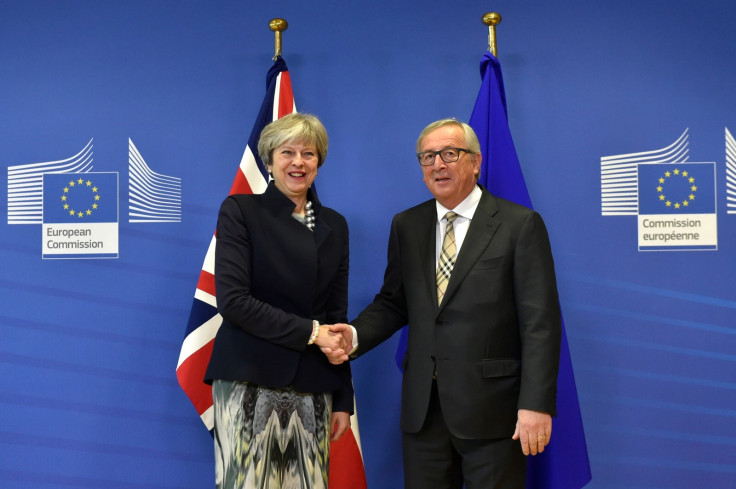No hard border: UK government set to concede to EU over Irish row
The EU demanded that the divorce bill, citizens' rights and the Irish border problem be resolved.

The UK government looks set to make a key concession in their talks with the EU and the Irish government, paving the way for post-Brexit trade talks to begin.
Leaked reports from the EU have suggested that Westminster government will not diverge from EU laws and regulations, preventing the formation of a 'hard border' between Northern Ireland and the republic.
The reports from MEPs suggest that Theresa May is expected to allow "continued regulatory alignment" between the two nations after Brexit.
In a tweet, the EU council president, Donald Tusk, said that progress had been made on the row over the Irish border.
Post-Brexit trade talks have hinged on the progress of talks over three key issues, the divorce bill, citizens' rights and the Irish border.
With a solution for all three seemingly in place, the UK government looks set to get the green light to discuss trade.
Tell me why I like Mondays! Encouraged after my phone call with Taoiseach @campaignforleo on progress on #Brexit issue of Ireland. Getting closer to sufficient progress at December #EUCO.
— Donald Tusk (@eucopresident) December 4, 2017
The question over citizens rights appears to have made positive steps, with the divorce bill also set to have been agreed at around £50bn.
It was the Irish border that was the final stumbling block which appears to have been unblocked.
The Irish border question
As it stand there is a frictionless border as both nations are part of the customs union and the single market, but this will cease to be the case in March 2019.
The Westminster government's decision to leave both unions mean that new agreements need to be reached over the future of the Irish border.
The EU have made it clear that a border of some kind will need to be imposed because of legal checks needed.
Chief EU negotiator Michel Barnier said: "customs controls are part of EU border management. They protect the single market. They protect our food safety and our standards."
If the UK opts for a very hard Brexit, which would result in the country defaulting onto WTO trade rules, the EU would then impose a series of border checks.
To emphasise that the EU is in control of its borders, they may impose strict rules on border checks. However, in an effort to minimise border backlog, the UK government could opt to carry on as normal and not check the goods that come from Ireland.
The DUP, who are in a confidence and supply deal with the Conservative Westminster government, have warned that they could walk away from any agreements if Northern Ireland remains part of the single market or customs union.
But other devolved regions are set to be uneasy about one state being able to effetively remain inside the single market.
Scotland's First Minister, Nicola Sturgeon expressed her concern abut the proposed deal.
She said: "If one part of UK can retain regulatory alignment with EU and effectively stay in the single market (which is the right solution for Northern Ireland) there is surely no good practical reason why others can't."






















